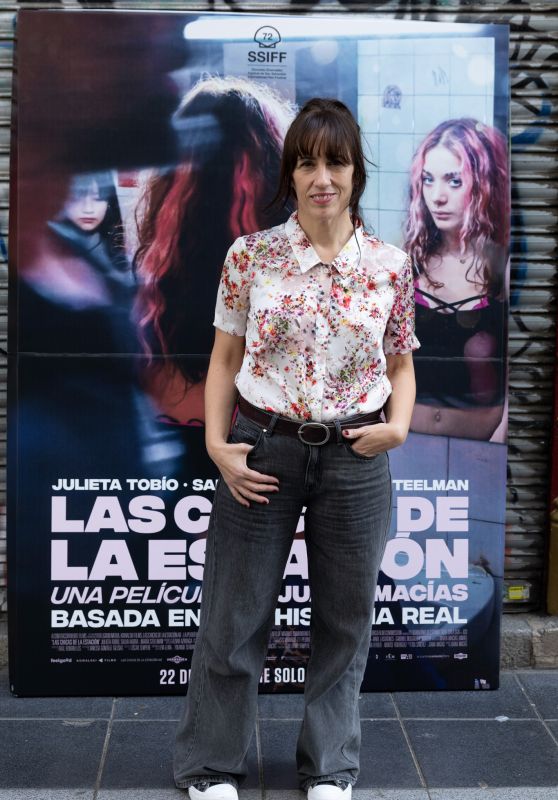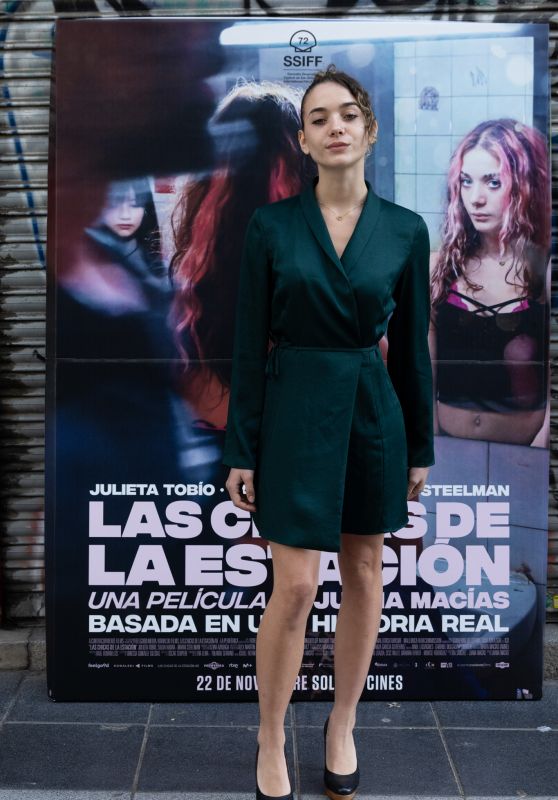For anyone who’s seen Conclave, questions abound. Do the Cardinals really scheme like the Plastics in the cafeteria? Can a speech really vault someone to the papacy? And what would happen if the newly elected pope dropped the chromosomal surprise of a lifetime?
THR is here to help. Our new series The Watchers gathers the biggest experts on a film’s world to discuss what they’ve seen. Think of The Watchers as friends you go to dinner with after the screening — only they’ve spent their lives preparing for the chat.
Here’s who we’ve brought together this time. Check them out, then sit back and let them tell you what’s historical and what’s howl-worthy about Conclave. (Warning: Spoilers ahead.)
Before I send you off to the races, tell me: the level of scheming. Is that plausible, or is that Hollywoodized?
MARTENS That kind of discussion all takes place at a conclave or prior to a conclave. They have so many dinners, not to maneuver, but to get to know each other. But the politics are talked about. They were in 2005 with the election of Benedict, and same in 2013.
GIBSON One of the film’s dynamics that does track with a real conclave or College of Cardinals is that a pope never lets on that his health is bad — a pope is never sick until he’s dead — because it would lead to more jockeying. And that’s what you have happen here, where they all start doing that after he dies.
CUMMINGS But there is a general congregation that precedes a conclave as all the cardinals are making their way to Rome. That’s why in the film it says “three weeks later.” A lot of the politicking that we see in the movie [during the conclave] actually happens in that interval. (Laughs.) But I guess “General Congregations” doesn’t make for a good Hollywood movie.
And the campaigning …?
GIBSON They don’t really campaign. They talk about their “vision” for the church. And it just happens to match up perfectly with someone who gave a speech. Cardinals wouldn’t campaign for themselves in any way. They really wouldn’t. They would have other people do it for them.
CUMMINGS One thing that rang true for me is at the general congregation in 2013, Cardinal Jorge Bergoglio gave a speech that got everyone talking. He talked about Christ not only knocking to get in but to get out, that the Church needs to go to the periphery. The speech was a big part of why he was chosen.
So the Benitez speech that catapulted him to the papacy not only can happen but did happen, as recently as 11 years ago?
DOYLE It happened in 2005, too, when Cardinal Ratzinger presided over the Mass for John Paul II and he had to give the big homily and everyone suddenly knew him because of that.
GIBSON That speech Fiennes gave in the conference room is a little like that Ratzinger speech — he put his notes aside and spoke from the heart. But instead of getting a few votes as Fiennes did, Ratzinger won the election. It was weird they had it in a conference room instead of the Basilica of Saint Peter. I assume they couldn’t CGI the Basilica.
MARTENS And these are the moments we’re aware of. Later on in the conclave, if after a number of voting rounds there’s still no election, cardinals will take turns to give a speech exhorting their fellow cardinals.
GIBSON The idea of Benitez getting chosen out of nowhere is a victim of the genre — I call it “Pope Fiction.” Conclaves are built for this drama; 130 guys go in, and any could be picked. There’s a cardinal in Mongolia now whose flock is 1,400. He’s very much analogous to Benitez. He could be pope.
CUMMINGS I had a question: the in pectore cardinal. My understanding is that wouldn’t be plausible, that someone shows up and says, “The pope chose me as a cardinal and told me and didn’t tell anyone else.”
MARTENS I’m watching the movie like a real nerd. I’m on the tip of my chair. People around me are thinking, “What is he doing?” And this cardinal in pectore shows up and I’m like, “This is impossible.” In pectore means “in the heart” of the pope. Only he knows. So even the one who’s appointed wouldn’t know unless the pope releases the name.
HUSSAIN I just assumed as an outsider that the pope made the decision and let the person know. So Benitez wouldn’t even know?
MARTENS No.
So would the head of the conclave stop him?
MARTENS Exactly. He shouldn’t have been let in. I will say, I was impressed with the Latin prayer. Oh my God, they did a very good job.
GIBSON And Fiennes’ Italian is pretty good.
HUSSAIN The costuming, too.
What about all the talk of liberalization? Would they speak so openly about that?
GIBSON That debate is going on now quite openly. It’s a film, and you have to be more explicit and dramatic. But the dynamics are, “Are we going to go forward and change everything or go back to this traditionalist Catholicism?”
HUSSAIN Many Jesuit priests are Indian, and many are African. In my hometown of Toronto, there are many Dominican priests. The Church has to engage with inclusiveness.
GIBSON There’s that line where they talk about change and all these different groups and then Stanley Tucci says “and women,” and a cardinal pauses and says, “Let’s just not mention the women.” Everybody in the audience laughs, but it’s a very real thing. You can talk about all kinds of reforms for the Church. But women and gays? Suddenly everybody gets hinky.
CUMMINGS There are also the nuns. They’re so easy to caricature, but Isabella Rossellini gives a wonderful portrayal of an intelligent woman that rings true. I’m not sure about the intervention where she bursts in, and she also wouldn’t be up in the Casa Santa Marta near the priests’ bedrooms, certainly at night. But what she says, about nuns seeing and hearing, is so emblematic of nuns and so beautiful.
The question of female representation brings us to the intersex plot twist. What would happen if a new pope did make such a revelation? Would a cardinal accept it?
GIBSON I was laughing out loud. There’s so much else rich going on in the movie, and did that actually help? But also I was in Rome with students the week before and the pope had welcomed intersex and trans teens. So this outlandish and fun plot twist hit a whole different way with me because a pope just had welcomed them, much like in the movie a cardinal welcomed this intersex woman and said, “You have to be who God made you.”
CUMMINGS A lot of the women I was watching it with were like, “Really? This is how women get power in the Church? This is the route to it?” So there was no laughter in my crowd.
MARTENS I heard a lot of laughter and I’m like, “Why are you laughing?” I’m left hanging. It’s an important issue — was his priestly ordination valid? Was his Episcopal ordination valid? All that kind of stuff. There’s so much to unpack there that I don’t even know where to start, let alone what to think of it.
DOYLE When I thought about, “Is this whole thing feasible?” I thought, “Maybe, sort of.” It’s very far-fetched and improbable. But it travels on a symbolic level. Obviously the dead pope is Pope Francis, no question. And the question is the impact he might’ve had in bringing about a church that’s more female. And I think symbolically the movie did a good job with that. There’s something very plausible in that sense with what’s going on. It’s a serious statement about a church that needs to change.
It’s fascinating to see the film on these other levels, in these social-commentary terms. Do any last moments stand out?
CUMMINGS The moment when Benitez admits he had a papal name in mind like it’s a big deal. I mean, come on, all cardinals have a papal name in mind.
GIBSON That was a great line. “It’s like, everybody picks their name.”
CUMMINGS Have you picked your name, David?
GIBSON I’m still thinking.
This story first appeared in a November stand-alone issue of The Hollywood Reporter magazine. To receive the magazine, click here to subscribe.




















 English (US) ·
English (US) ·